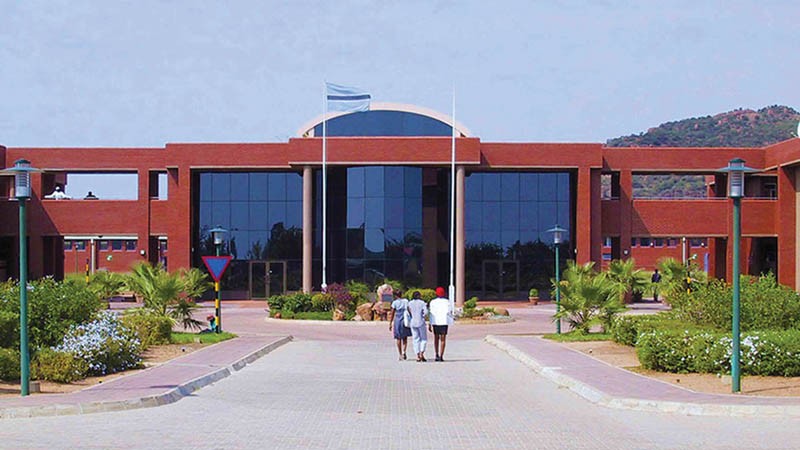GTC students left in the lurch
Baboki Kayawe | Friday June 30, 2017 18:17


Three programmes have been adversely affected by the repeated course extensions namely Diploma in Hospitality Management, Diploma in Travel Management and Diploma in Culinary Arts in the process frustrating the student community some of whom enrolled in the courses while already absorbed in the job market.
The Student Representative Council (SRC) bemoan no sense of urgency from management and the ministry in addressing student concerns despite numerous attempts to have the situation normalised. Numerous correspondences have been made between the student community and authorities since 2016 when the piloting batch for the above programmes was supposed to graduate.
According to SRC member, Katlo Rantopele, these learners were enrolled under an initiative called Better Education for Africa Rise (BEAR). This was an upgrade from the normal BTEP certificate qualification, which was initially offered for hospitality management, travel management and culinary arts programmes. All these programmes have a combined student population of 109.
“These students who came in 2014 were supposed to graduate in June, 2016, but their stay was extended to December same year.There was then another extension to April 2017. This was also pushed further to June 2017.
But the students are still in limbo awaiting results, which will determine whether they graduate, re-sit or get another extension,” he said.
Rantopele said at their recent meeting with the ministry officials, they were assured that their results would be out in July.
Another extension is inevitable because the pilot project was not well planned and thoughtout, hence it is characterised by shortage of human resources among others - and students used to spend an awful amount of time without lecturers thereby badly affecting their results.
“When taking re-sits into considerations for sure there will be an extension,” Rantopele said. Besides the lack of human resources, the SRC stated that the Quality Assurance Authority (QAA) unit at the ministry aggravated the situation, as they would release the results very late. In addition, the students bemoaned that the results would be mixed up further exacerbating the situation, as more time would be required to sort the results out.
This has crippled enrolment at the technical college as students admitted as early as 2014 still occupy facilities such as hostels, classrooms and other resources. For instance, this year GTC will only admit Beauty Therapy and Hair Dressing students. This is despite the institution’s prospectus listing 17 programmes.
A highly placed source at the college who preferred anonymity said the call for applications was delayed this year because the advertisements are now centralised coming from the higher education ministry. In addition, very limited programmes would have an intake given the prevailing student backlog as it has worsened resource scarcity at the institution.
This was brought before the Public Accounts Committee specially elected legislator, Bogolo Kenewendo who questioned the lack of intake for GTC this year.
“We heard reports that some students overstayed and for that reason there will be no intake at GTC this year. I even phoned the school and that was confirmed,” she said.
However, permanent secretary Theophillus Mooko said there was an intake for all programmes.
The delay widens the already skills scarcity that the custodian of human capital, Human Resource Development Council (HRDC) is worried about. In March 2016, the tourism sector disseminated their sector human resource development plan at the Hospitality and Tourism Association of Botswana (HATAB) conference.
According to the HRDC 2015-2016 annual plan, players in the sector are concerned of mismatch concerning supply of graduates and demand from the labour market.
“One of the strategic objectives in the plan is partnership of the industry with tertiary institutions,” the report stated.
The Ministry of Tertiary Education, Research, Science and Technology says it is aware of some delays that at times have led to the extension of period of study, and that case specific interventions are taken. They also concede that any delays, as would be imagined, have cost implications.
“In addition, once the throughput is affected, this disadvantages those prospective learners who would have loved to enrol in the affected programmes. In addition, there is a negative impact on the availability of the required skills within the economy,” Sehularo said.
The impact will, of course, depend on the length of the extension, he added.
“But in some instances it is a question of cost benefit analysis, wherein we have to assess the value derived from such an extension,” he said.
Spokesperson at the tertiary education ministry, Silas Sehularo said the assessment process, as currently set up, involves both the institution and QAA.
“As a result challenges do arise on both sides,” he said.
GTC student population at the moment is 588. Technical colleges receive funds ranging from P5 million to P13 million, and the ministry says the funding caters for both operational and developmental costs with the amounts varying on an annual basis.
